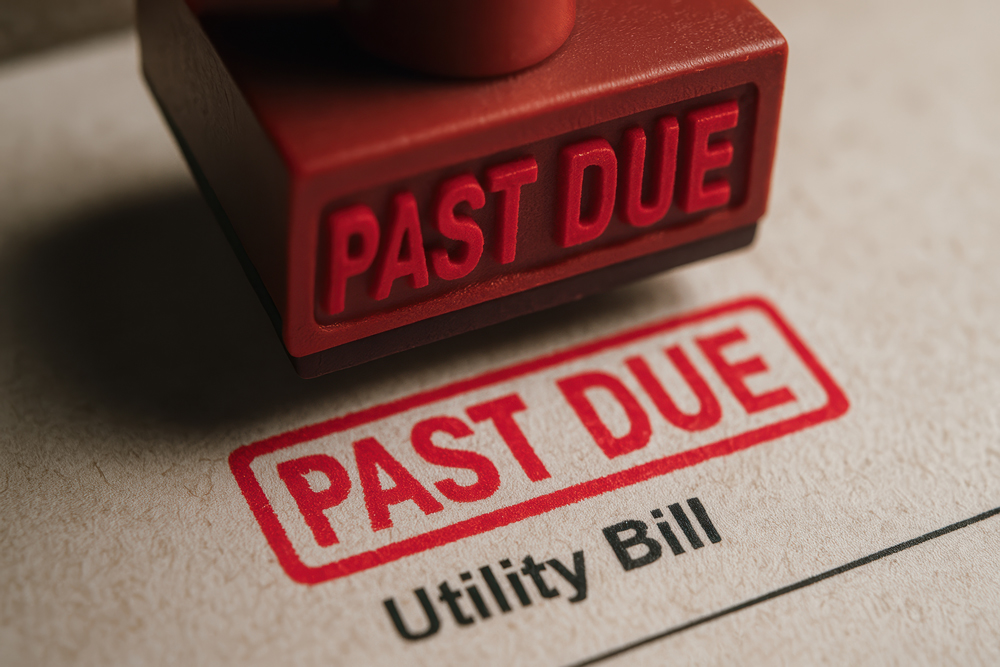As Halloween approaches and ghost stories fill the air, there’s one tale more frightening than any poltergeist or black cat crossing your path — buying a home without knowing what lurks beneath the surface. In the spirit of the season, it’s time to dust off an old Latin phrase that still haunts real estate transactions today: Caveat Emptor, or “Let the buyer beware.”
While Halloween only comes once a year, real estate horror stories are eternal. Cracks in the foundation, invisible mold, ancient wiring, or the lingering curse of hidden liens – these are the real-world equivalents of haunted basements and eerie footsteps in the attic. Let’s look at what homebuyers should beware of in today’s market, and how to avoid turning your dream home into a financial fright fest.
🎃 What is Caveat Emptor?
Caveat emptor is a legal doctrine meaning the Buyer alone is responsible for checking the quality and suitability of goods before a purchase is made. In the context of real estate, this means that if you buy a home and later discover serious problems – say, a leaky roof or a broken sewer line – you may have little legal recourse unless the seller actively hid the issue.
Ohio requires sellers to provide buyers with a written disclosure of certain conditions and information concerning the property that is actually known by the seller. It requires disclosure of issues with the water supply, sewage, roof, water intrusion, structural issues, wood-destroying insects (such as termites), mechanical systems, underground storage tanks, floodplains, erosion issues, zoning violations, HOA assessments, and boundary line issues, including shared driveways or walls. The seller is required by law to provide truthful answers.
The Disclosure requirement, however, does not eliminate the perils of Buyer Beware – the ghost of caveat emptor still lingers. In Ohio, unless you can prove fraud or concealment, you’re stuck with the haunted house you bought — creaky pipes, skeletons in the crawlspace, and all.
Don’t let your homebuying journey become a cautionary tale. You can protect yourself by hiring a thorough Home Inspector. Your inspector is your paranormal investigator. They should check everything: roof, foundation, HVAC, plumbing, electrical, attic, and crawl spaces. If they won’t go into a creepy basement, find someone who will. Simply hiring a reputable inspector, however, won’t eliminate fraudulently hidden issues with the property. Many home inspection contracts also limit the home inspector’s responsibility in the event a defect isn’t found to a simple refund of the inspection cost. What happens then? You’re left holding the bag, and there is no candy in it – only repair costs for which you will be responsible unless you can prove the seller knew of the problem and intentionally failed to disclose it.
Be vigilant. Hire a qualified home inspector. Ask for full disclosures. Check permits and renovation history, and look beyond superficial cosmetic changes. Fresh paint can hide water damage. New carpet might cover pet stains or warped flooring. Trust your gut — if something smells off (literally or figuratively), investigate. And, most definitely, beware of “As-Is” Properties. “As-is” means you take the property in its current state – no repairs, no haggling, no protection. Sometimes this works for experienced flippers, but for most buyers, it’s like entering a haunted house blindfolded.
While caveat emptor is a scary concept, don’t fear the market – but don’t be naïve. Not every horror story starts with a creaking door – some begin with a bad real estate deal.
So before you fall in love with a charming Victorian or a cozy colonial, channel your inner ghost hunter. Ask the tough questions. Investigate the shadows. Investigate the disclosures or lack thereof, because in the world of real estate, caveat emptor is more than a phrase — it’s a warning.
If you want to avoid buying a haunted money pit, consult with legal counsel and a qualified real estate agent in your area before you sign anything — the right team can exorcise a lot of potential problems before they take possession of your wallet.
If you feel you are the victim of fraud or have been scammed, contact the author at mbly@pselaw.com or 937-223-1130. At Pickrel, Schaeffer and Ebeling, we’re here to help.
Happy house hunting… if you dare. 🕸️💀🏚️













